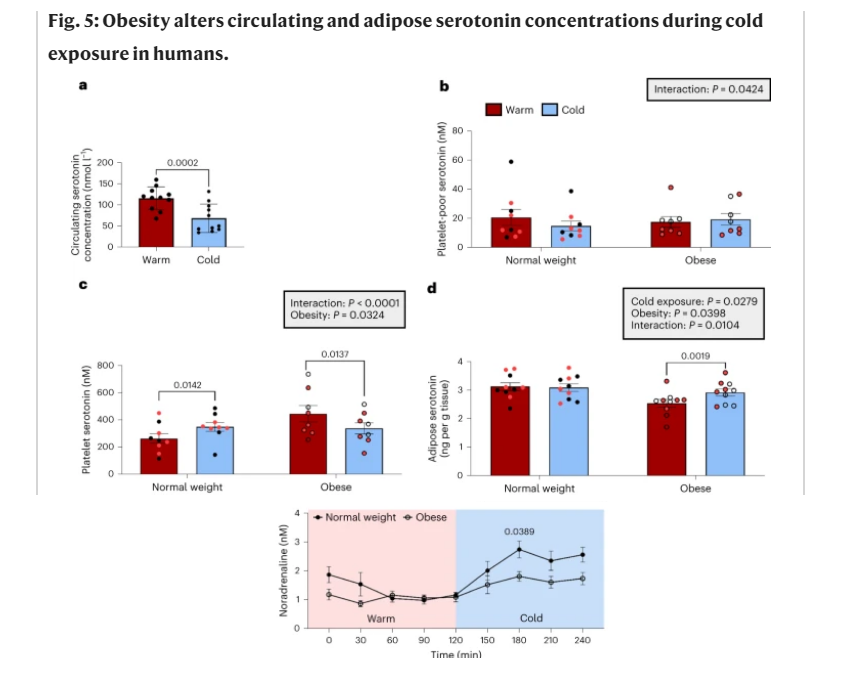Mild cold exposure (16 degrees c) reduced circulating serotonin -40% (shifts into platelets)
-
a thermogenesis mechanism from cold exposure, uncoupling (e.g from thyroid hormone) happens mainly in brown adipose tissue & muscle {when noradrenaline increases this , the mechanism is through noradrenaline increasing t3 locally, though increased deiodinase 2 enzyme activity}
16–17 ° Celsius in light clothing was enough for a need to increase thermogenesis by shifting circulating serotonin and raising noradrenaline
Serotonin inhibits this heat generating effect from cold in brown adipose tissue (through 5ht2b receptor), the serotonin transporter which takes serotonin away reverses this effect and allows brown tissue to generate more heat in response
& the effect is lost in people with obesity partly from producing less noradrenaline from the colder environment, and already higher platelet serotonin
https://www.nature.com/articles/s42255-023-00839-2

-
I'm a bit confused is the reduction of circulating serotonin good in this case or bad?
I know serotonin is bad in general and we want to have less of it but in this context I cannot tell if this reduction in circulating serotonin is bad or good.
-
@Verdad Serotonin bad. All my homies hate serotonin.
-
https://raypeatforum.com/community/threads/why-is-this-serotonin-receptor-type-bad.25497/
"there is a difference between plasma and platelet serotonin, and it's my understanding the 5HT2B is plasma, which is the very bad serotonin" by user alywest
and then
"1,4-naphthoquinones stimulate serotonin uptake in platelets in a manner similar to other SSRE such as tianeptine and in opposition to SSRI drugs like Prozac (fluoxetine)." by user haidut
So it seems like a good effect